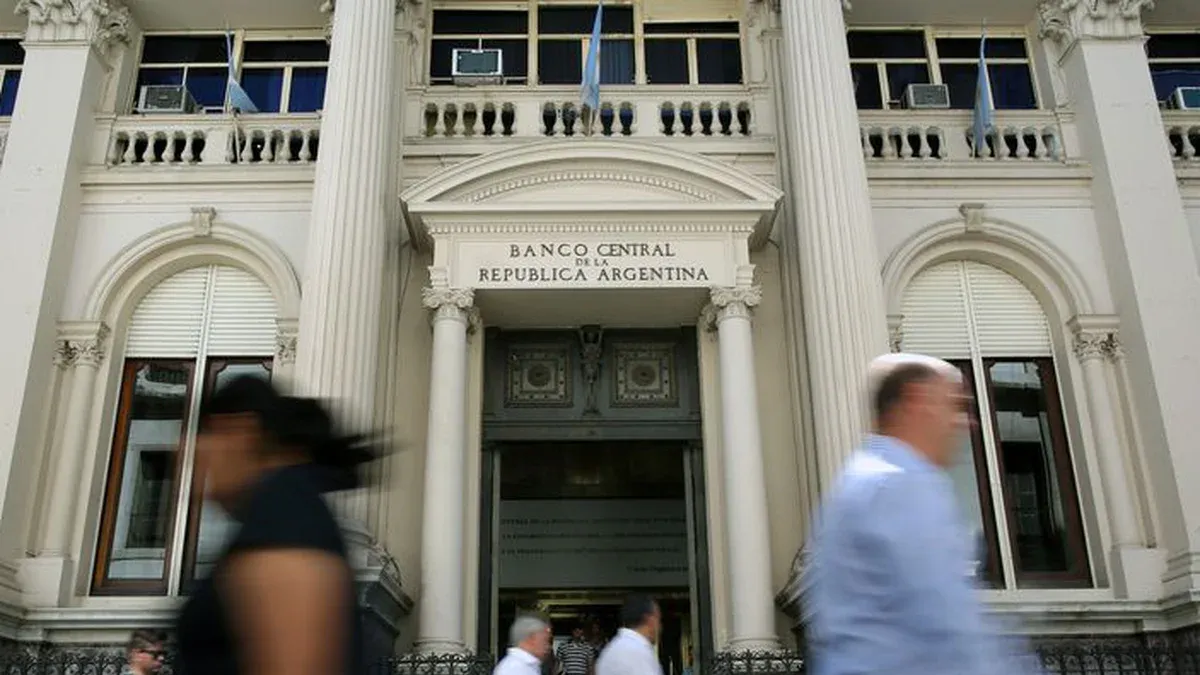In the meantimenews from the International Monetary Fund (IMF) is awaited on its review of the macroeconomy for the third Argentine bimester, whose approval will enable another disbursement committed in an agreement at the beginning of the year.
For its part, The Buenos Aires stock market is extended from this week by 60 minutes until 6:00 p.m., with its usual opening at 11:00 a.m., in search of aligning Wall Street’s winter operations.
What do analysts say?
Economists and analysts give their opinion on the situation in the country, which is struggling to reduce the fiscal deficit, stop the rise in prices, shore up net reserves and avoid a slowdown in its economy in the face of the dangerous cut in the purchasing power of wages.
“You have a central bank without reserves, this is the main problem in the desert that the Argentine economy has to face in the coming months, especially until March. There is not even three weeks of imports and there is no greater supply of foreign currency going forward; on the contrary, there are higher payments,” said economist Martín Redrado in television statements.
“We are entering a period of quite heated electoral seasonality (…) Our recommendation is to have coverage on all fronts, through instruments that offer coverage against inflation, devaluation and, at the same time, favor the high accrual of rates, after the abrupt rise made by the central bank this year”, commented Paula Gándara, an analyst at Adcap Asset Management.
“Extends on a daily basis the drainage of foreign currency (from BCRA reserves), and the operators anticipate the arrival soon of more measures to balance the dynamics (…) The consensus grows among the operators that the ‘ironed’ financial dollars are falling behind in the face of such high inflation and it is anticipated that in the short term they should wake up and rearrange, given that external noises are added to internal noises,” said Gustavo Ber, an economist at the Ber Study.
“Argentina achieved not only the approval by the IMF of the goals for the second quarter, but also those for the third quarter would have been pre-approved. This fact, key to the release of the funds committed in the agreement, generates relief. However, although this event is necessary, it is not sufficient for allay fears in the face of an electoral 2023, which looks volatile”said José Segura, chief economist at PwC Argentina.
The S&P Merval “reached a new all-time high, around 154,000 points (last Tuesday), but could find support at 147,500 points. This index tries to return above 150,000 points, but the all-time high is at 154,000 points could act as resistance,” said Alexander Londoño, an analyst at ActivTrades.
“Going forward, the rate hikes promised by central banks (led by the Federal Reserve) will continue to put pressure on (asset) valuations”Balanz Weekly reported.
“The weight of (sovereign) debt denominated in local currency is increasing and, added to the weighting of indexed securities, the market is discounting an increasingly complicated post-election rollover scenario. Meanwhile, short debt garners the most interest from investors,” consultancy firm Delphos Investment said.
“The central bank continues with a poor performance in the official (exchange) market, ending last week with an accumulated sales balance of almost 370 million dollars. Everything indicates that the ‘soybean dollar’ was an advance on exports, and the The next few months in the foreign exchange market are going to be challenging for the government,” said Roberto Geretto, an economist at the FundCorp investment fund.
“‘Macroeconomics kills efforts and microeconomic opportunities’. Argentina’s macro in recent years has worked so poorly that in a certain way it is anesthetizing us and we are almost beginning to get used to inflation rates between 6% and 7% per month , exchange rate gaps close to 100% and risk premiums between 2,500 and 3,000 basis points,” the Mediterranean Foundation summarized the situation in the country.
“The Budget (2023) underestimates inflation (expected at 60%) and enables the Government to make discretionary use of resources”said the director of the Center for Studies of the New Economy (CENE) of the University of Belgrano, Víctor Beker.
Source: Ambito
David William is a talented author who has made a name for himself in the world of writing. He is a professional author who writes on a wide range of topics, from general interest to opinion news. David is currently working as a writer at 24 hours worlds where he brings his unique perspective and in-depth research to his articles, making them both informative and engaging.




